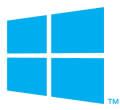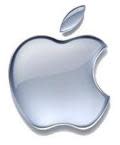Software week in review, July 11
Microsoft is still trying to woo users away from
Windows 7
and XP; Apple's next iPhone has a sapphire screen, and the phone after that may have a smart lock; and Google is killing apps and bad site certificates. Read on for more of the week's software news, and to get the latest reviews and features from our editors in your inbox, subscribe to our weekly newsletters.
Microsoft

Yesterday CEO Satya Nadella declared that Microsoft is no longer a "devices and services" company, but rather will reinvent productivity, with a focus on mobile and cloud. He also said that July will be dedicated to discussing Microsoft's future, so look for more news this month. Meanwhile, some things we do know:
Support ends on January 13, 2015, for Windows 7 and the 2003 and 2008 editions of Windows Server. Half the desktop and laptop users worldwide are using Windows 7, according to Net Applications, so that's a lot of people who will have to update to Windows 8 or go commando.
With that in mind, Microsoft is trying to make the next version of its OS, Threshold (possibly Windows 9), more tempting to the Windows 7 holdouts. However, Threshold is expected in spring of 2015, which would be after support ends for Windows 7.
Speaking of no support, that same Net Applications report shows that a stubborn 25 percent of desktop and laptop users are clinging to Windows XP, though Microsoft cut off support in April. Oracle has quit supporting Java for XP, too.
Webmail is safer now that Microsoft has activated Transport Layer Security (TLS) for Outlook.com, Hotmail.com, and other services. The catch: TLS stops snooping only if both sender's and recipient's email clients use it. Gmail, Yahoo Mail, and AOL do, and you can check others at Gmail's encrypted email page. Internet service providers are lagging Webmail in supporting TLS.
And because every tech company wants consumers to wear their heart rate on their sleeve, Microsoft is reportedly releasing a fitness tracker this fall.
Apple

The iPhone 6 is probably two months away, and so are the other products announced at WWDC, yet the rumors have been flowing nonstop since June.
On the hardware side, the iPhone 6 may have extended battery life, a sapphire crystal screen that can take a beating (see video), and haptics to let you feel things on the screen. The iWatch -- which Apple still has not officially announced -- appears to be suffering release delays.
On the software side, iTunes Extras -- for the bonus features that come with movies -- will become available on Apple TV and iOS devices with the release of iOS 8.
If you surf with Safari, Apple will make you upgrade Adobe Flash, as older versions have a security hole that could let intruders steal your cookies.
Two weeks ago, Chinese developers released a jailbreak for iOS 7.1.1 for Windows. That has now extended to Mac and to iOS 7.1.2. ZDNet has the score on why you might want to jailbreak, but as always, do so at your own risk.
Looking further into the future, Apple has filed a patent application for a smart lock that would sense your location and adjust passcode requirements accordingly.
Finally, it looks like Apple snitched on Google to the FTC. In January, Apple was ordered to pay $32.5 million to users whose children were able to make in-app purchases without parental permission. Apple tipped off the FTC about Google having the same issue. The FTC also filed suit this week against the Amazon Appstore for unauthorized in-app purchases.

Google released a recap -- in Google Docs, natch -- of all the Google Apps upates for June. Some more news:
Google bought Songza, an online radio that builds contextual playlists, anticipating what you might want to listen to next.
Chrome has now eclipsed Firefox in share of the Web browser market.
Right before the Fourth of July, the company blocked a handful of forged site certificates for Google domains, which might have led to browsers trusting untrustworthy sites.
Google sent several of its products to the killing floor, including Orkut, which becomes an ex-social network in September; the Quickoffice mobile word-processing app; and the Chrome plug-in for Google Hangouts.
And Google has game-ified Maps with Smarty Pins, a game that tests your knowledge of geography and trivia. More practically, you can now right-click on your starting point in Google Maps to measure the distance to your destination.
How to...


